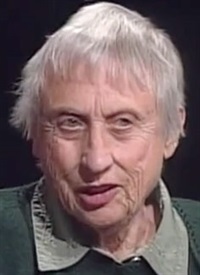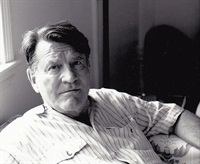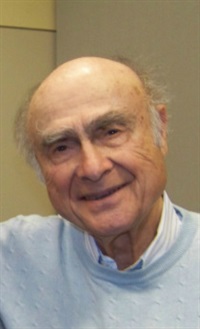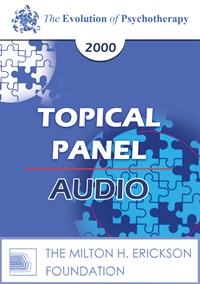EP00 Topical Panel 05 - Training Therapists I - Mary Goulding, MSW; Jay Haley, MA; Ray Corsini, PhD; Erving Polster, PhD
- Average Rating:
- Not yet rated
- Topic Areas:
- Topical Panels | Therapist Development | Training | Psychotherapy
- Categories:
- Evolution of Psychotherapy | Evolution of Psychotherapy 2000 | Pioneers in Couples and Family Therapy
- Faculty:
- Mary Goulding, MSW | Jay Haley, MA | Erving Polster, PhD | Ray Corsini, PhD
- Duration:
- 56 Minutes
- Format:
- Audio Only
- Original Program Date:
- May 27, 2000
- License:
- Never Expires.
Description
Description: This panel focuses on the evolution of therapist training, emphasizing practical experience, group work, and personal development. Topics include integrating therapy into training, the value of peer relationships, and the need for longer, more immersive programs. The panel also addresses challenges in training diverse populations, the importance of evaluation, and emerging areas like geriatric therapy.
Moderated by Ellyn Bader, PhD.
Educational Objectives:
- To compare and contrast clinical and philosphical perspectives of experts.
*Sessions may be edited for content and to preserve confidentiality*
Credits
Handouts
| Timestamped Transcript (844.4 KB) | 19 Pages | Available after Purchase |
| Ericksonian Learning Snapshot (248.5 KB) | 2 Pages | Available after Purchase |
Faculty

Mary Goulding, MSW Related Seminars and Products
Mary Goulding, MSW, is one of the leading exponents of Transactional Analysis. Along with her husband Robert Goulding, she developed an approach called Redecision therapy which synthesizes Transactional Analysis and Gestalt. Together they founded the Western Institute for Group and Family Therapy in Watsonville, California, and co-authored two professional books about their approach. There is also an edited volume about the Redecision model. Mary has served as a member of the Board of Trustees of the International Transactional Analysis Association and is a Teaching Member of that organization. Her M.S.W. was granted in 1960 from the School of Social Welfare, University of California, Berkeley.

Jay Haley, MA Related Seminars and Products
Jay Haley (M.A., 1953, Stanford University) was Director of Family Therapy Institute of Washington, D.C. He was one of the leading exponents of the strategic/interpersonal approach to family therapy. Haley served as Director of the Family Experiment Project at the Mental Research Institute and as Director of Family Therapy Research at the Philadelphia Child Guidance Clinic. He has authoered seven books, co-authored two and edited five. Additionally, he has more than 40 contributions to professional journals and books. Haley is the former editor of Family Process, and the first recipient of the Lifetime Achievement Award of The Milton H. Erickson Foundation.

Erving Polster, PhD Related Seminars and Products
Erving Polster, Ph.D in clinical psychology, is the Director of The Gestalt Institute of San Diego, and the author of several important books, including Gestalt Therapy Integrated, Every Person's Life is Worth a Novel, and From the Radical Center: The Heart of Gestalt Therapy, as well as dozens of articles and chapters. Erving has authored 6 books. In his current writings, he offers perspectives and designs for a communal application of psychotherapy principles. He also describes and celebrates a powerful contemporary momentum for people-at-large to join together in the search for personal and social enlightenment.

Ray Corsini, PhD Related Seminars and Products
RAY CORSINI, Ph.D., was a retired Professor of Psychology, University of Hawaii. He had been in private practice for 35 years. Dr. Corsini has published over 60 books under 43 titles, including four encyclopedias and the most complete dictionary of psychology, and has written or edited 18 books in counseling or psychotherapy. He is listed in Who's Who in America, Contemporary Authors and the Biographical Dictionary of Psychology, 1997.
Raymond Corsini's training was diverse. He received a BA and MA at the City College of New York, then did his doctoral training at Syracuse University, Cornell University, University of California, University of Wisconsin (all during the time of his work as a prison psychologist), and finally obtained a Ph.D. at age 41 from the University of Chicago under Carl Rogers. He met and interacted with J.L. Moreno, Fritz Perls, Victor Frankl, and Albert Ellis among others, but his main teacher was Rudolf Dreikurs, an Adlerian. He had three separate careers: as a prison psychologist for 15 years, then an industrial psychologist for ten years, and finally in private practice of psychotherapy and counseling for 30 years. Usually in the summers, he taught courses at over a dozen universities and full time at the University of Chicago, Illinois Institute of Technology, and the University of California at Berkeley.


